Interim Report of the Investigatory Team on the State of the Chemical Industry in Israel at the Beginning of the 21st Century
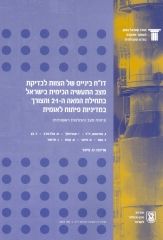
The aim of this work is to survey the state of the chemical industry in Israel today and the alternatives for its future development and to recommend formulation of a national policy in this field. This work complements and updates the chemical industry survey conducted and distributed by the Samuel Neaman Institute in 1995, by […]
The Impact of R&D Spillover on Growth and Productivity in Israeli Manufacturing Industries 1990-1994, Science, Technology and the Economy Program (STE) – Working Papers Series STE-WP-14
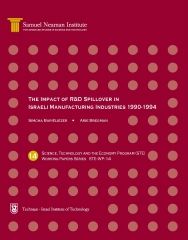
The study presents the positive external effects (spillovers) of investments in research and development in manufacturing industries, in Israel and abroad. This examination quantifies the spillover of domestic and imported technologies, through intermediates and capital goods, to establishments that did not participate directly in the research and development process. The analysis examines the interactions between […]
Conceiving New Industrial Systems: The Different Emergence Paths of the High-Technology Industry in Israel and Ireland, Science, Technology and the Economy Program (STE) – Working Papers Series STE-WP-11
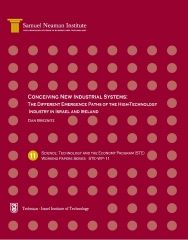
In the last decade, both Israel and Ireland have been on the forefront of a successful double revolution. In the international arena, the two small states have been the hotbeds of new technology based firms (NTBF) that establish themselves in global markets in the area of software and information technology, making the two states successful […]
Cooperation and Competition in R&D with Uncertainty & Spillovers, Science, Technology and the Economy Program STE-WP-6
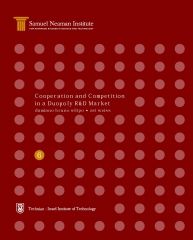
In a general setting with uncertainty and spillovers in R&D activity, we consider the incentive to cooperate among firms at any or all of the following three stages. Firms can jointly agree on the level of R&D expenditures, they can set up joint research facilities, and/or they can engage in an information sharing agreements, by […]
Investments in Civilian Research & Development in Israel: Background Data for Development of a National Policy

Israel is basing its progress and prosperity on human capital (quality manpower) and unique knowledge. The outstanding expression of this is the development of an industry based on advance knowledge which in the last decade led Israel to an impressive average economic growth of 5%, of which 30% stem from high-tech industry (1). In spite […]
Targeting Industries for Regional Development in Israel and in Germany – A Comparative Study, SNI R&D Policy Papers Series
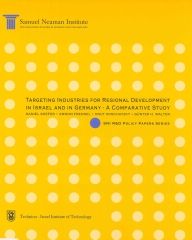
Economic growth is driven to a large extent by technological progress and innovation. It is therefore essential for effective public policy to identify the group of innovative industries so that policy makers will be able to target government incentive programs toward this specific group of industries. In the present study we assumed that innovation is […]
University Technology Transfer in Israel: Evaluation of Projects and Determinants of Success – SNI R&D Policy Papers Series
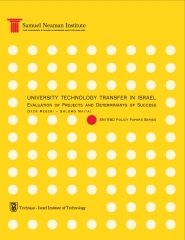
The purpose of this study is to examine how technology transfer organizations (TTOs) at Israeli universities evaluate projects and how they perceive the success or failure of these projects once they are selected. We also analyze whether the criteria they use are similar to those employed by venture capitalists and MIT. We find that the […]
Spatial Diffusion of Industrial Innovation and Regional Development
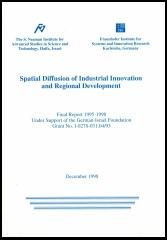
A new horizon of the history of mankind opened at the end of the 20th century. Facing the new picture of the world, arising out of the growth of the technological culture, everything has to be thought about from now on, from assumptions of values, through principles of deed, to details of execution. The enormous, […]
The Contribution of Science to Israeli Security

This survey was commission by President of the Technion, Professor Zehev Tadmor, as part of a series of surveys on the contributions of science to the State of Israel on its 50th anniversary. The project was initiated by the Israel Academy of Sciences and Humanities. Even before the establishment of the State of Israel the […]
The Contribution of Technion Graduates to the Israeli Economy
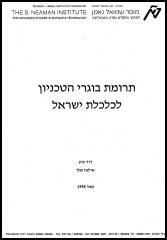
This report shows the contribution of leading Technion graduates to Israel’s economy. The leaders are decision makers with influence on their organizations including chairmen of board of directors, presidents, CEO’s, deputy CEO’s etc. The leaders’ population was taken from a special list prepared by the Technion Alumni Liaison Office and includes 600 graduates. 2% of […]
